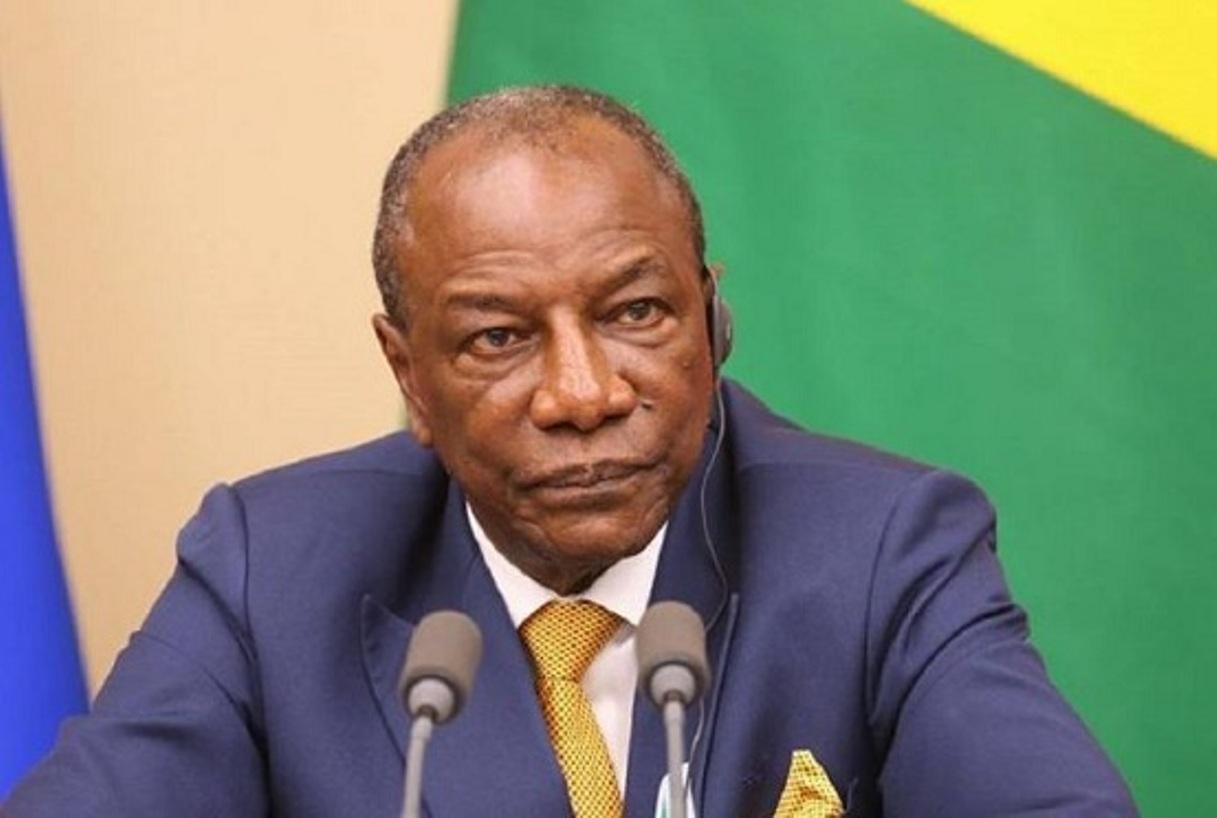Penultimate Sunday, Guinea witnessed its third coup d’etat when officers of the elite Army Special Forces unit led by Colonel Mamady Doumbouya overthrew 83-year-old President Alpha Condé. The ouster of President Condé was greeted by celebrations on the streets.
There was jubilation and chanting of ‘Freedom’ as the Guinean junta drove Condé round the Guinean capital, Conakry, demonstrating his rejection by Guineans. And the coup was quickly endorsed by the opposition leader, Cellou Dalein Diallo.
- 2023: Zoning presidency to South, wishful thinking – Sen Adamu
- PODCAST: What Happens To The Various Taxes Nigerians Pay?
True to the usual script, Colonel Doumbouya made series of pronouncements, invoking the failure of the ousted elite to promote the welfare of the people and promising redemption. He pledged a “national union” government soon. He also dissolved the country’s elected government and suspended the nation’s constitution. He gave an assurance of calm to the vital mining sector.
Amid such shopworn rhetoric, one phrase resounded powerfully from the speech of Colonel Doumbouya, “If you see the state of our roads, or our hospitals, it is time for us to wake up.”
This is the third time in five months that we are witnessing a non-democratic transfer of power in West Africa. Mali has twice witnessed coups in the last 13 months. Chad saw succession not through democracy but military imposition; and now, Guinea. The result is that new leaders arose from their respective militaries, the same disease of coup d’etats that had arrested the development of democracy in the sub-region and the continent.
We condemn the coup in Guinea in very strong terms as it is a setback to democratic development in Africa, especially the West African sub-region. The reaction and condemnations of the United Nations (UN), the African Union (AU) and the Economic Community of West African States (ECOWAS) are welcome as it is untenable to change government through force.
What remains is for these bodies to go a step further by imposing sanctions until the new junta in Guinea returns the military to the barracks. The new leaders should focus on handing over power to a democratically elected government and not try to manipulate the country’s ethnic and linguistic diverse nature to find reason to stay a day longer than necessary.
But the blame for the coup lay squarely with President Condé. He sowed the seeds by unconstitutionally and undemocratically subverting his nation’s democratic development through changing the constitution so he could run for another term in March 2020, effectively going beyond the constitutional two terms.
This should be a lesson to all leaders in the region. There must be respect for all democratic norms, including term limits/tenure of office. They must understand that times have changed and that holding on to power when the time is up is a recipe for disaster. They must eschew selfishness, as one person’s ambition should not cause an entire nation to degenerate into a situation of chaos. Two terms of four years or five years as the case may be is enough time for any leader with vision to bring development to his/ her country.
There were videos of Guineans dancing in the streets and cheering as trucks full of soldiers paraded Conakry, an indication that the people were indeed tired of the president. A reaction which can only be due to failed promises. Why then should such a leader desire another term? Right now the world, including Guinea is battling economic crisis largely caused by the COVID-19 pandemic, this country does not also have to deal with instability. The country’s economy which is built on its mineral wealth has not benefitted the citizens as the politically-connected keep getting rich while the living conditions of the masses improved only marginally. All efforts must be made to return Guinea to democratic rule immediately.
Going forward, the UN, AU, ECOWAS and their member nations should be more forceful in condemning anti-democratic tendencies of leaders and not hide under the cover of non-interference in countries’ internal affairs. It would be recalled that in the run-up to the third term in Guinea, their condemnation was at best feeble. They should withdraw support for any leader working to subvert democracy. Furthermore, African leaders should activate the peer review mechanism to act as a check for this kind of thing.
We also call on the colonial masters, in this case, France, to play more positive roles in the future of their former colonies, especially in ensuring that they toe the democratic line at all times. The world is consolidating on the gains of sustained democratic rule, Guinea cannot afford another dance with jackboot dictatorship.

 Join Daily Trust WhatsApp Community For Quick Access To News and Happenings Around You.
Join Daily Trust WhatsApp Community For Quick Access To News and Happenings Around You.


